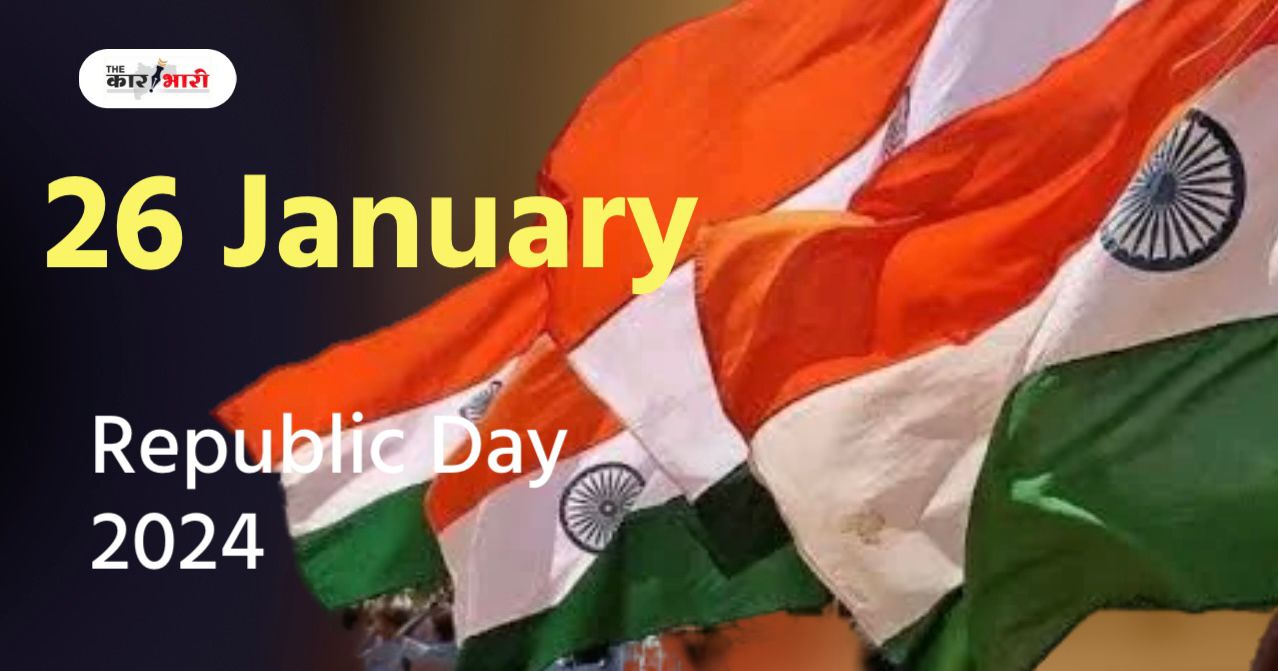Why is 26 January celebrated as Republic Day? | Learn the history and significance!
Republic Day in India is not just a national holiday but a significant occasion that holds immense historical and cultural importance. Celebrated every year on January 26th, Republic Day marks the day when the Constitution of India came into effect in 1950, replacing the Government of India Act (1935). This monumental event is commemorated with great enthusiasm and patriotic fervor throughout the country. Let’s delve into the 10 reasons why Republic Day is celebrated.
- Inception of the Constitution: Republic Day honors the birth of the Constitution of India. The Constituent Assembly, led by Dr. B.R. Ambedkar, toiled for years to draft and adopt the Constitution, which became the supreme law of the land on January 26, 1950.
- Democracy Takes Center Stage: India’s transition to a republic on this day symbolizes the triumph of democracy. The Constitution guarantees citizens certain fundamental rights and sets the framework for a democratic government, emphasizing the importance of the people’s voice.
- Unity in Diversity: Republic Day celebrates India’s diverse cultural heritage and unity among its varied populace. The Republic’s founding principles emphasize the coexistence of different languages, religions, and traditions under the umbrella of a unified nation.
- Patriotic Fervor and National Pride: The day instills a sense of pride and patriotism among Indians. Citizens express their love for the country through various cultural events, flag hoisting ceremonies, and parades that showcase India’s military strength and cultural richness.
- Honoring the Martyrs: Republic Day is an occasion to pay tribute to the countless freedom fighters who sacrificed their lives for the nation’s independence. The Amar Jawan Jyoti, the eternal flame at India Gate, is a poignant reminder of their sacrifices.
- Showcasing Military Strength: The Republic Day parade in the capital, New Delhi, is a spectacular display of India’s military prowess. The marching contingents, military hardware, and cultural performances showcase the country’s strength and resilience.
- Cultural Extravaganza: Republic Day celebrations are not limited to official ceremonies; they extend to cultural events across the country. Dance performances, music concerts, and art exhibitions showcase the diversity of India’s rich cultural tapestry.
- Educational Significance: Republic Day serves as an educational platform to impart knowledge about the Constitution, the democratic system, and the history of India’s struggle for independence. Schools and colleges organize special programs to educate the younger generation about their country’s heritage.
- Renewing Commitment to Justice and Equality: The Constitution of India emphasizes the principles of justice, liberty, equality, and fraternity. Republic Day serves as a reminder to uphold these values, fostering a commitment to creating a just and equitable society for all.
- Global Recognition: Republic Day is not just celebrated within India; it also draws attention globally. Diplomats and dignitaries from various countries attend the Republic Day parade in New Delhi, reflecting India’s standing in the international community.
Conclusion: Republic Day is not merely a date on the calendar; it is a celebration of India’s journey towards becoming a sovereign, socialist, secular, and democratic republic. It is a day to reflect on the principles that bind the nation together and to renew the commitment to building a brighter and more inclusive future for all its citizens.


